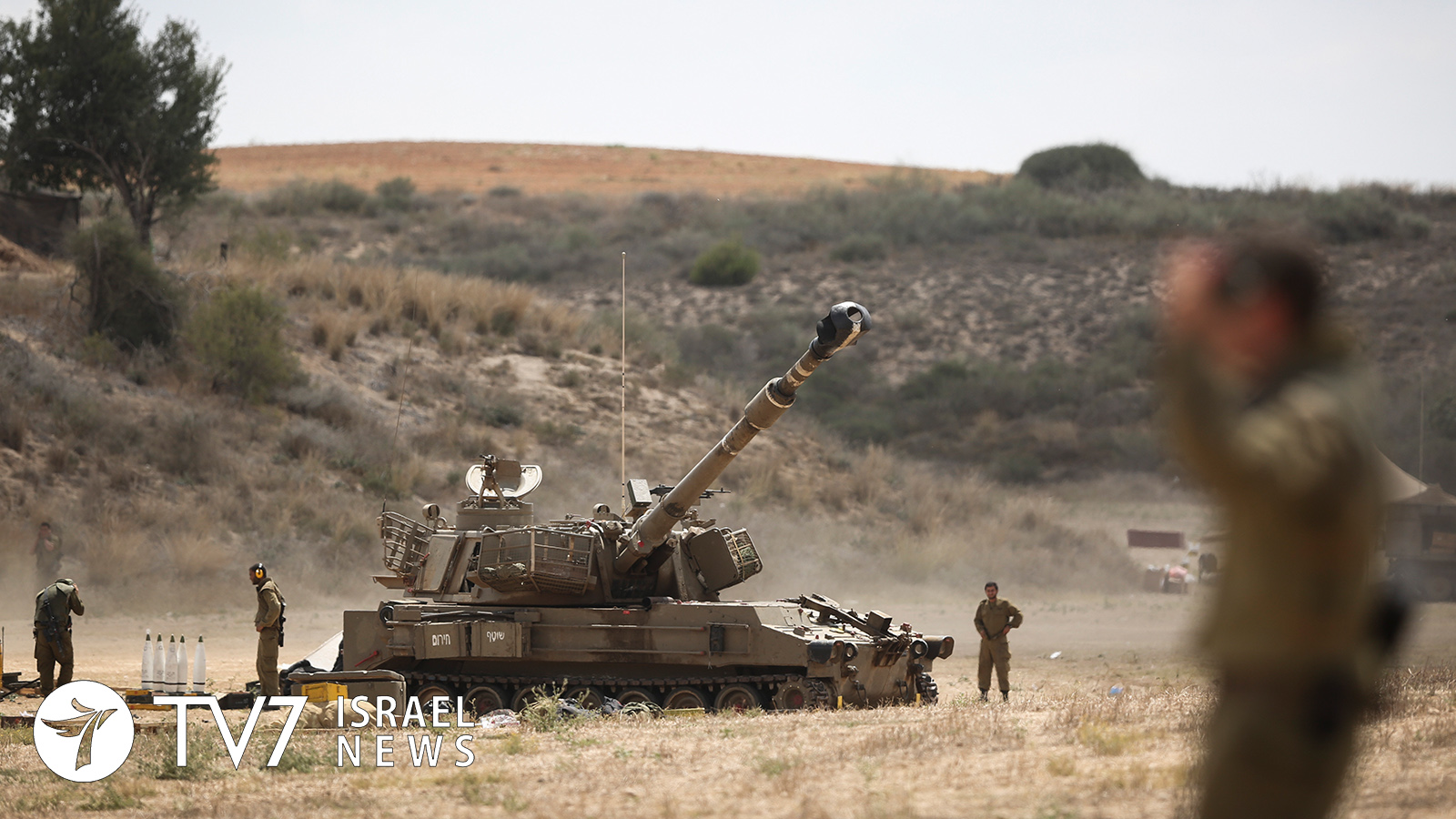The IDF raised its state of alert along Israel’s northern frontier, in anticipation of an expected retaliatory attack by Iran’s Lebanese-proxy, Hezbollah.
Evidently, Israel’s top military brass decided to refrain from deploying additional troops along the Israel-Lebanon security barrier “for tactical reasons,” yet, senior military officials told TV7 that a number of Iron Dome anti-rocket defense batteries were stationed across the northern half of the country, and intelligence-related activities have intensified.
The prevailing Israeli assessment is that Hezbollah Secretary General Hassan Nasrallah, with Iran’s backing, will follow through on his pledge to retaliate for the deaths of two of his organization’s operatives in Syria, who were killed in Israel’s preemptive strike over the weekend, against Islamic Revolutionary Guards installations in a southern suburb of Damascus.
One Israeli Defense official, in a conversation with TV7, echoed circulating statements by other Israeli officials, in which ‘Jerusalem’s response in the event that Hezbollah were to attack military or civilian targets in Israel, would be disproportionately devastating.’ Nevertheless, the official underscored that if war was to break-out, the IDF will use all the tools at its disposal to assure “the demise of Hezbollah and the influence it grants its Iranian patrons in Lebanon.”
Amid the heightened tensions along the border region, Israeli and Lebanese civilians are separately aware, yet undeterred, of a possible military escalation. On the Israeli side of the frontier, residents insist that life goes on as usual. According to Oz Shachari, an Israeli resident from northern border-Kibbutz, “I don’t really feel the tense here in the border, we live normally, we go, we have fun, we go to the river, we go, we go to restaurant, we have a lot of fun, and travels and everything next to the border.” Yaniv Elhadif, who is also an Israeli resident of a border-town said: “We are not afraid, we are aware. I am living right on the fence, but I was born into it, never knew anything else. I can’t say again that I’m afraid of them, they’re constantly provoking us, they come, and they shake our fences, they cut them, they constantly put us on alert. So, we’re always with one ear and one eye open.”
On Lebanon’s predominantly Shi’ite Muslim side of the border citizens claim they have no fear of a potential war with Israel; while maintaining that the armed presence of Iran’s-proxy Hezbollah provides them with a sense of security. Lebanese resident of southern border-village Abou Jamil said: “We are not scared of anyone, not at all. We are on Lebanese land, this is our livelihood, we don’t like anyone to attack us, and those who attack us, we are standing ready waiting for them.” / “The resistance (Hezbollah) is here and as long as the resistance is protecting us, we will be just fine. The Israelis have become scared of us, we stand on the border fence, do they dare stand, times have changed.”
It is important to note that in correlation with past experiences, Hezbollah is expected to wait with its pledged retaliatory attack. The Israeli assessment is that Hezbollah will first deliberate over multiple Israeli targets and the timing for its vowed response, similar to the case in January 2015, when two IDF soldiers were killed in an ambush on Mount Dov; as well as a separate deadly cross-border raid by Hezbollah operatives in 2006, which precipitated a wide-scale military conflagration that same year.
Prime Minister Benjamin Netanyahu convened Jerusalem’s security cabinet last night, to discuss the latest developments on both Israel’s northern and southern volatile frontiers. While the attending ministers refused to comment on the contents of the meeting, Finance Minister Moshe Kahlon revealed that not all the actions that have been ascribed to Israel were carried out by the IDF.
Meanwhile, this morning Prime Minister Benjamin Netanyahu levelled a warning to Lebanon, Hezbollah Secretary General Hassan Nasrallah, and the commander of the Islamic Revolutionary Guards’ Quds Force, General Qassem Suleimani, “to be careful” with what they say and do. In his words: “I heard what Nasrallah said. I suggest to Nasrallah to calm down. He knows well that Israel knows how to defend itself and to pay back its enemies. I want to tell him, and to Lebanon, which hosts this organization that aspires to destroy us, and I say it also to (chief of Iran’s Quds force) Qassem Soleimani – be careful with what you say, and even more, watch your actions.”
Netanyahu’s advisory, voiced during a corner-laying ceremony for a new Jerusalem center of the Mobileye tech company came in light of a statement on Twitter by General Suleimani, who claimed that Israel’s deadly operation against his operatives in Syria were “insane,” while vowing that Jerusalem’s efforts to thwart Tehran’s military entrenchment in Syria, were “the last tries of the Zionist regime.”
Israel’s top security brass has expressed concerns in light of the latest developments across the Middle East, over apparent increased Iranian efforts to attack the Jewish State. As such, Prime Minister Benjamin Netanyahu – who also serves as Jerusalem’s Defense Minister – released a filmed statement in which he calls on the international community to act immediately against Iran’s malign activities. “Iran is operating on a broad front to carry out murderous terrorist attacks against the State of Israel. Israel will continue to defend its security however that may be necessary. I call on the international community to act immediately so that Iran halts these attacks,” Netanyahu said.
